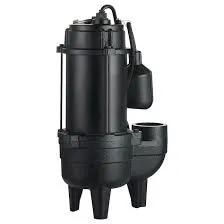Norwegian
- Afrikaans
- Albanian
- Amharic
- Arabic
- Armenian
- Azerbaijani
- Basque
- Belarusian
- Bengali
- Bosnian
- Bulgarian
- Catalan
- Cebuano
- Corsican
- Croatian
- Czech
- Danish
- Dutch
- English
- Esperanto
- Estonian
- Finnish
- French
- Frisian
- Galician
- Georgian
- German
- Greek
- Gujarati
- Haitian Creole
- hausa
- hawaiian
- Hebrew
- Hindi
- Miao
- Hungarian
- Icelandic
- igbo
- Indonesian
- irish
- Italian
- Japanese
- Javanese
- Kannada
- kazakh
- Khmer
- Rwandese
- Korean
- Kurdish
- Kyrgyz
- Lao
- Latin
- Latvian
- Lithuanian
- Luxembourgish
- Macedonian
- Malgashi
- Malay
- Malayalam
- Maltese
- Maori
- Marathi
- Mongolian
- Myanmar
- Nepali
- Norwegian
- Norwegian
- Occitan
- Pashto
- Persian
- Polish
- Portuguese
- Punjabi
- Romanian
- Russian
- Samoan
- Scottish Gaelic
- Serbian
- Sesotho
- Shona
- Sindhi
- Sinhala
- Slovak
- Slovenian
- Somali
- Spanish
- Sundanese
- Swahili
- Swedish
- Tagalog
- Tajik
- Tamil
- Tatar
- Telugu
- Thai
- Turkish
- Turkmen
- Ukrainian
- Urdu
- Uighur
- Uzbek
- Vietnamese
- Welsh
- Bantu
- Yiddish
- Yoruba
- Zulu
Telephone: +86 13120555503
Email: frank@cypump.com
Dec . 23, 2024 21:16 Back to list
Durable Centrifugal Pumps for Chemical Resistance Applications in Various Industries
Chemical Resistant Centrifugal Pumps An Overview
Centrifugal pumps, vital components in various industrial applications, are primarily designed for transporting fluids through the conversion of rotational kinetic energy into hydrodynamic energy. Among their many types, chemical resistant centrifugal pumps stand out due to their specialized construction and materials, which cater to the challenges posed by the handling of aggressive and hazardous chemicals. This article delves into the significance, design features, applications, and maintenance considerations of these essential pumps.
Significance of Chemical Resistant Centrifugal Pumps
In industries such as chemical processing, pharmaceuticals, wastewater management, and food processing, the safe and efficient transportation of corrosive and abrasive fluids is paramount. Standard pumps may falter under the stress of such demanding conditions, leading to equipment failure, costly downtime, and unsafe working environments. Chemical resistant centrifugal pumps offer an ideal solution, as they are built to withstand harsh chemicals, high temperatures, and extreme pressure conditions, thus ensuring operational reliability and safety.
Design Features
The design of a chemical resistant centrifugal pump involves selecting appropriate materials and features that can endure chemical interactions. Commonly used materials include
1. Thermoplastics Polypropylene, PVDF (polyvinylidene fluoride), and PTFE (polytetrafluoroethylene) are often employed due to their excellent chemical resistance and durability. 2. Metals with Protective Coatings Stainless steel and other metals can be treated with specialized coatings or linings to enhance their resistance to chemical corrosion.
3. Sealing Mechanisms Pumps often include advanced sealing technologies, such as mechanical seals or packing, designed to prevent leaks and protect the motor and bearings from exposure to chemicals.
4. Impeller Design Impellers are designed not only for efficient fluid handling but also with features to minimize wear from abrasive particles often found in chemical slurries.
5. Pump Casings The design of the casing must accommodate high chemical resistance while providing ease of access for maintenance.
Applications
Chemical resistant centrifugal pumps have a broad range of applications across various sectors
. Some notable examples includechemical resistant centrifugal pump

- Chemical Manufacturing These pumps facilitate the movement of aggressive liquids such as acids, bases, and solvents in production processes. - Water Treatment In wastewater treatment facilities, these pumps are essential for transporting corrosive sludge and chemicals employed in the treatment process.
- Pharmaceuticals In the pharmaceutical industry, precision and hygiene are paramount. Chemical resistant pumps ensure safe transport of raw materials and finished products.
- Food and Beverage Specialized pumps that meet food safety regulations are utilized to handle substances that could damage traditional pumps.
Maintenance Considerations
While chemical resistant centrifugal pumps are designed to withstand harsh operating conditions, regular maintenance is crucial for optimal performance and longevity. Here are some best practices
1. Routine Inspection Regular checks for signs of wear, leaks, or corrosion can help identify issues before they escalate into costly repairs.
2. Fluid Compatibility Always ensure the pump materials are compatible with the fluids being handled. Using inappropriate materials can lead to premature failure.
3. Seal Maintenance Mechanical seals should be inspected and replaced as needed, as they are critical for preventing leaks and protecting internal components.
4. Performance Monitoring Keep track of pump performance metrics such as flow rate, pressure, and energy consumption. Any deviations may indicate underlying issues requiring attention.
5. Training Personnel Ensure that operators are well-trained in the proper handling and maintenance of these pumps to reduce the risk of accidents and extend the equipment's lifespan.
Conclusion
Chemical resistant centrifugal pumps play an essential role in the safe and efficient transportation of hazardous fluids across various industries. Their specialized materials and design features ensure reliability and safety in the most demanding applications. Through vigilant maintenance and adherence to best practices, organizations can maximize the performance and longevity of these critical components, ultimately safeguarding their operations against potential failures and enhancing productivity. As industries continue to evolve, the importance of innovative solutions like chemical resistant pumps will undoubtedly expand, reinforcing their necessity in modern industrial processes.
-
Reliable Non-Clog Sewage Pumps with GPT-4-Turbo Tech
NewsAug.04,2025
-
High-Performance Air Pumps for Sand & Gravel | Efficient Transport
NewsAug.03,2025
-
ISG Series Vertical Pipeline Pump - Chi Yuan Pumps Co., LTD.|Energy Efficiency, Corrosion Resistance
NewsAug.03,2025
-
ISG Series Pipeline Pump - Chi Yuan Pumps | Energy Efficiency&Compact Design
NewsAug.03,2025
-
ISG Series Vertical Pipeline Pump - Chi Yuan Pumps Co., LTD.|High Efficiency, Low Noise, Durable
NewsAug.02,2025
-
ISG Series Vertical Pipeline Pump - Chi Yuan Pumps | High Efficiency, Low Noise
NewsAug.02,2025










